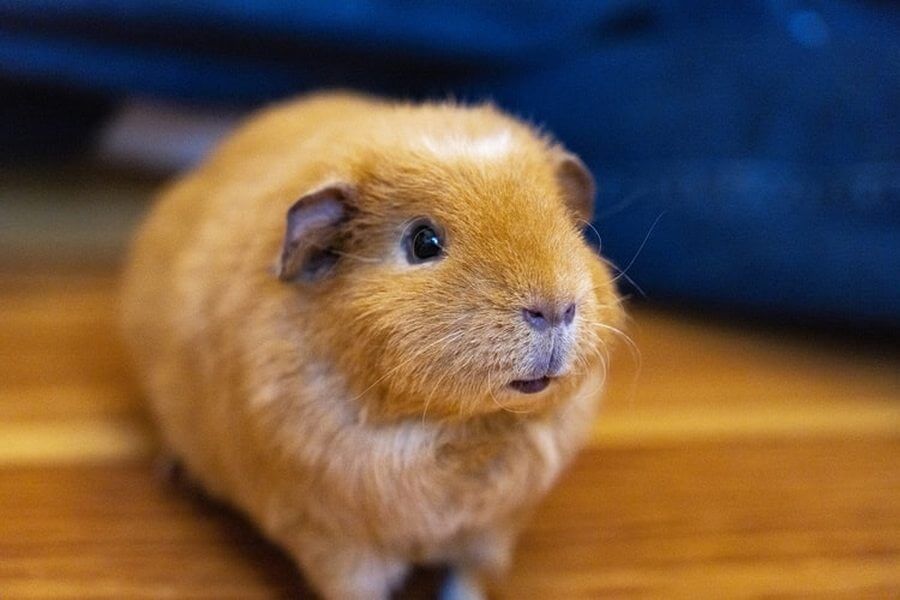Guinea pigs are one of the world’s most unique and adorable rodent pets. These creatures have such large personalities and are often misunderstood. Having a guinea pig as a pet comes with responsibilities. These include many of the same responsibilities as you’d have with a cat or dog.
However, guinea pigs require slightly different care due to their size and species. One of the biggest things to remember about owning a guinea pig is that they still require regular vet visits like other animals in your home.
A good exotic vet will examine your piggie thoroughly. They will check their ears, mouth, throat, eyes, and fur condition. They will check their teeth and gums as well as listen to their lungs and heart. Their examination includes checking for any abnormalities in their stomachs or genital areas.
Knowing a little bit about what to expect from a trip to the vet with a guinea pig is extremely helpful!
Guinea pigs should be seen by a vet for yearly checkups. This is to ensure that they are doing well and thriving in their environments at home. However, guinea pigs aren’t the same as other animal species. They are not generally seen by the same veterinarians that see cats or dogs.
Guinea pigs should always be examined by an exotic pet vet. These vets specialize in small animals like guinea pigs, chinchillas, rabbits, rats, snakes, turtles, etc.
These special vets have different training than regular vets are qualified to give you proper advice about your pet’s health. Because guinea pigs (and the other animals listed above) aren’t the same as cats and dogs, they need different care.
Exotic pet vets know what to look for in small animals to know if they are doing well. Additionally, they are experts in the proper care needed to maintain and sustain these small creature’s lives. But what can you expect at a vet visit with one of these specialists?
Below are some things to expect when taking your piggie to the exotic vet!
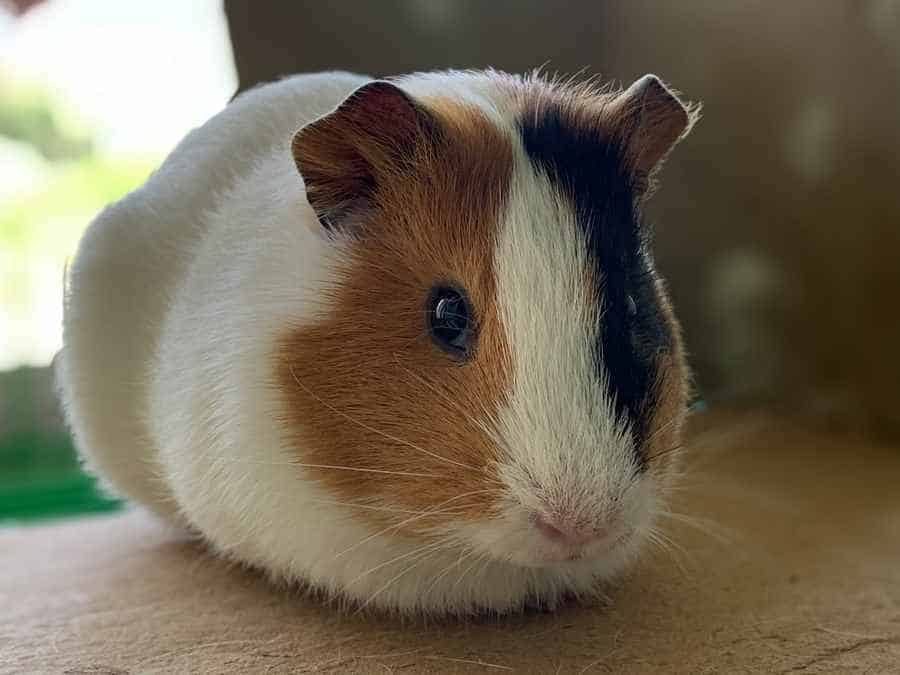
Things To Expect At The Vet With A Guinea Pig
Male Guinea pigs are known for having issues with fecal impactions and other not-so-pleasant secretions.
During the examination, your vet will be asking you basic questions about the care you are providing your piggie. These questions aren’t meant to be offensive and should be answered honestly. The answers can help the vet in anything they might be seeing during the examination.
Common questions they may ask you include what you are feeding them, what their cage environment is like, how much exercise they are getting, and how their overall behavior appears to be. Always answer honestly, it could end up really helping your piggie.
The Exotic Vet Will Get Help From A Vet Tech
Guinea pigs aren’t always receptive to strangers. Every piggie is different and some squirm more than others when being held by someone they don’t know. Vet techs are always present in the room to ensure that the visit goes as smoothly as possible.
Both your exotic vet and their tech vet should be talking calmly to your guinea pig and handling them firmly, yet not aggressively. They want the piggie to feel as comfortable as possible but they still need to perform their examination. This is why an extra set of hands is necessary for an exotic vet.
Your Piggie Will Be Weighed With A Tabletop Scale
One of the biggest things to expect during a vet visit is a weigh-in. It is super important to monitor your piggie’s weight as a drop of weight could signify an illness. You should attempt to weigh them at home every week if possible but if not, the exotic vet will definitely weigh them for you.
Due to guinea pigs being much smaller than other animals, they are weighed on a tabletop scale. Usually, at the vet’s office, this is the same scale they use for cats. It is important to note that exotic vets do not have their own offices, they are usually within the same building as vets who care for cats and dogs.

You Will Quite Possibly Learn Something New
It doesn’t matter if you are a new guinea pig owner or a long-time piggie momma or dad, there’s always something new to learn! Guinea pigs are such fascinating animals and exotic vets make it their duty to learn everything about them (and the other pets they specialize with).
Their dedication to this field ensures that you are receiving accurate information on the care of your pet.
New information can come in the form of many things. This can include new veggies to try feeding them, a recommendation for pellets or hay, ways to administer their daily vitamin c, or how to care for elderly guinea pigs.
In fact, the most surprising new information you may learn will probably be about elderly piggies. As piggies age, their bodies change and your vet should help you understand any changes you may see in your guinea pig.
They Make A Squeak During The Examination
It is totally normal for a piggie to squeak during a trip to the vet. They are more than likely to express their feelings during certain parts of the exam. You should not be concerned as they aren’t in any real pain.
This isn’t to say they aren’t in pain if they’re experiencing a health issue, but the vet or their tech isn’t intentionally harming them.
Any type of squeak a guinea pig might make tends to come from a general sense of discomfort during the exam. This could be when their teeth are being checked or their stomach or genital areas. Just don’t be too alarmed.
Moreover, if the squeak does appear to be something more serious, your vet will know and advise you of this. If there is an underlying condition and it’s detected during a vet visit, the squeak will be a lot louder and more prolonged than a quick squeak.
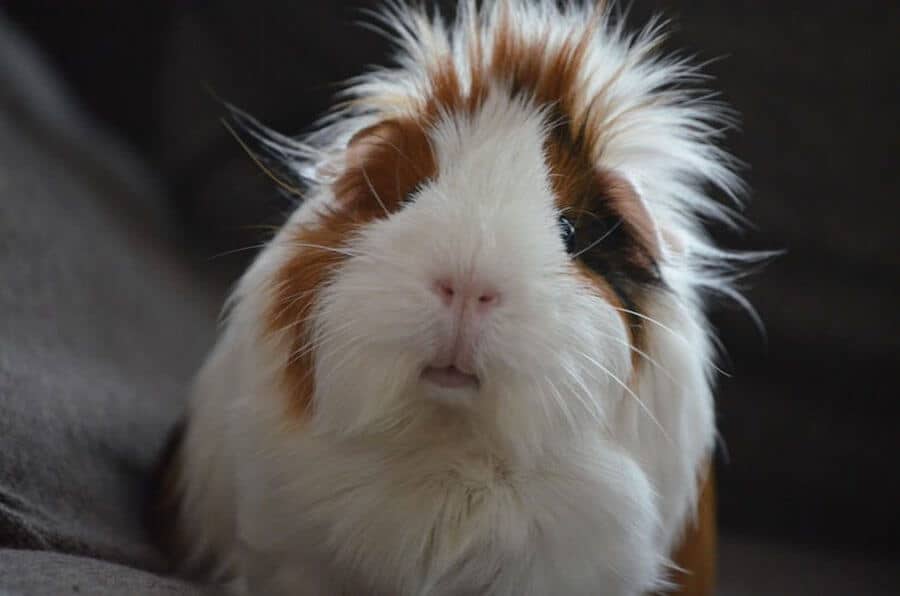
The Visit Is Generally Cheaper Than Vet Visits For Other Animals
Guinea pig vet visits should be cheaper than a cat or dog. This is because their examinations do not take as long as they are smaller creatures. While they do need fully examined, their care is usually priced a bit lower due to their size.
Additionally, their medications are on the cheaper side as well because they do not require large amounts of medicine. Once again, their size plays a huge role in this as the medications they may need should only be administered in small dosages so they aren’t being given too much.
This is a huge perk to taking a guinea pig to the vet as everyone likes saving a few dollars. The examination should also include clipping their nails, which grow constantly. Keeping them trimmed up prevents any serious issues with their paws.
However, you might choose to bring your piggie to the vet for clippings between exams. This service might be available through your exotic pet vet and a simple nail trimming will be significantly cheaper than their overall exam if that’s all they are having done.
Taking a guinea pig to the vet is a necessity, just as it is with other pets. For some people, it might seem strange to take a guinea pig to the vet but it is critical to ensure that they are healthy!
How Do I Take My Guinea Pig To The Vet?
Once you have found a reputable exotic vet (always read reviews!), schedule a visit! When transporting your guinea pig to the vet you should always use a pet carrier to keep them safe. A cat carrier is suitable, however, they do design carriers meant for small rodents.
Depending on the size of your piggie these might not be feasible. Some small rodent carriers are too small for guinea pigs as they are intended for hamsters or rats. Always aim to use a cat carrier or a carrier that your piggie fits into comfortable with room to move if they need to.
The pet carrier should be lined with bedding so that they aren’t sitting in urine if they relieve themselves during the trip. You may choose to use paper bedding but an easier alternative is to use puppy pads and a pre-washed anti-pilling fleece square of fabric.

This is to keep them comfortable during the trip. If you do not use pre-washed fleece as their primary bedding, paper bedding will be fine.
You should always provide a fresh source of food and hay to them in the carrier as well. The best veggie to provide your guinea pig while taking them to the vet is some cucumber slices. This also provides water for them which is also important.
It can be a hassle to attach a water bottle to the pet carrier. Cucumbers are naturally full of water and are a great alternative to a water bottle during transportation.
If you are taking your guinea pig to the vet in the summer, always turn the air conditioning on in your vehicle. Guinea pigs can tolerate temperatures between 65 and 75 degrees Fahrenheit (or 18 to 23 degrees Celcius) and automobiles can get well over 100 degrees in hot weather.
Protect your piggie from the heat by having the air conditioning on full blast. Additionally, turn the air conditioning on about 20 minutes prior to when you need to leave to ensure the car is cooled down enough.
The same concept is good to practice in the winter as well. If it is extremely cold out, turn the heater on to warm up the car. This ensures that your piggie will stay comfortable during the drive to your vet’s location.
You should place them in the car where the air vents are most accessible to reach them. This is generally in the front seat or on the floor of the front of the car. The carrier should be level and never tilted.
What Medical Care Do Guinea Pigs Need?
Guinea pigs are often mistaken as being boring pets or not that special. However, that is so far from the truth! They really are incredible animals and they have medical needs like other pets do throughout their lives.
This is particularly true for piggies as they age as they generally experience more medical issues after the age of 5 (their life expectancy is somewhere between 5-9 years). Below are some common examples of medical care that guinea pigs might need.
Examples Of Guinea Pig Medical Care
Guinea Pigs Can Benifit From Respiratory Infection Treatment
Guinea pigs are very susceptible to respiratory infections. Their small lungs cannot handle harsh smells and this includes urine from their bedding. If your piggie happens to get a respiratory infection, their breathing may change and they might experience a running nose.
It can be life-threatening if not treated. If an exotic vet diagnoses this, they will prescribe an oral antibiotic to help fight the infection.
Eye Infection Treatment For Guinea Pigs
Eye infections can occur in guinea pigs as well. This usually means your piggie might have leakage from its eye or the eye might be red. If an exotic vet finds this to be an issue, they will prescribe some sort of eye ointment and/or an antibiotic to help clear it up. It isn’t always life-threatening, but it could be.
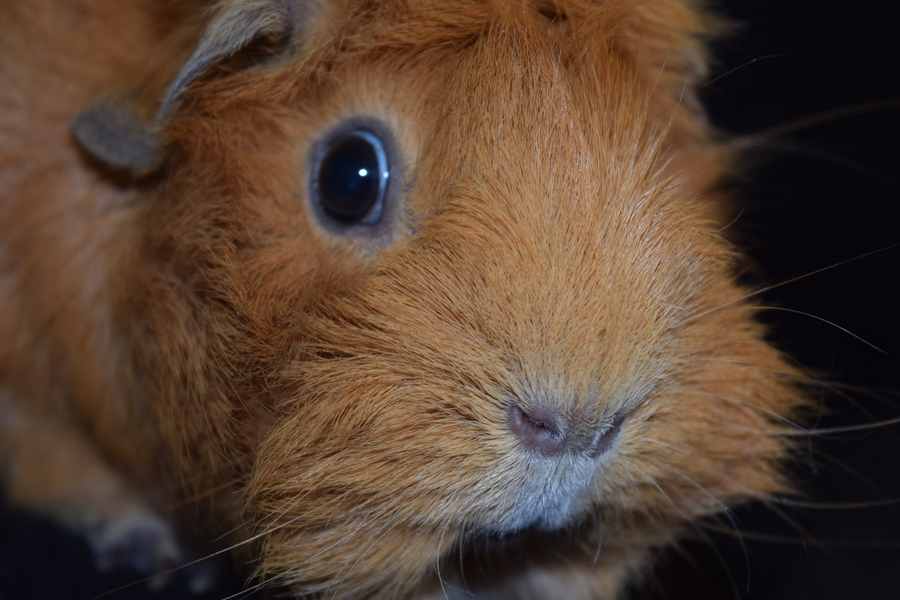
Teeth Cleaning Or Filing Your Guinea Pigs Teeth
Guinea pigs can experience issues with their teeth. Their teeth are always growing and are usually ground down by eating hay and food as well as using wooden chew toys. However, they can also experience issues where their teeth may break and their other tooth might need ground down to ensure that they are eating properly.
They can even grow third teeth on the bottom or top portions of their front teeth! It isn’t very common for this to happen, but it is important to get their teeth checked. Your vet may clean the teeth or file them down.
Mite Treatment For Your Guinea Pig
Mites are a condition that affects a guinea pig’s fur and skin. If your piggie has mites they will itch a lot and parts of their fir will usually fall out. Mites can be found in their hay or bedding areas. If you suspect they may have mites, getting it treated immediately is critical.
Mite treatment is always determined by your vet but they should be able to prescribe something to help rid you of the problem.
Bloating Treatment For Your Guinea Pig
Bloating in guinea pigs occurs when gas builds up in their intestines. This condition is called “Ileus” and can be life-threatening. The biggest red flag of this health issue is if your guinea pig refuses food or water and isn’t properly relieving itself.
Ileus is almost always triggered by stress related to an underlying condition or an external factor that has upset the piggie. This could be anything from a cage mate they don’t get along with to an illness you may not know about.
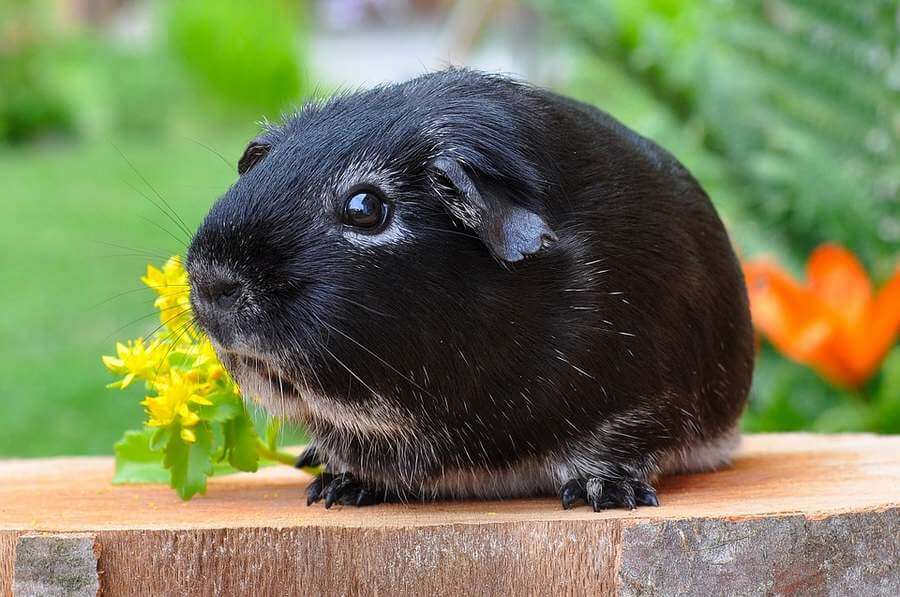
Urinary Tract Infection Treatment On Your Guinea Pig
Guinea pigs, especially males, can experience urinary tract infections. This is why an exotic vet always checks their tummies and genital areas at an examination. They are able to detect these issues during a routine exam.
Additionally, always check to see if your piggie is relieving itself normally and that there are no discolorations to their urine or fecal matter. Always tell your vet if you see something strange.
Anal Gland Cleaning For Male Guinea Pigs
Male guinea pigs often need their anal glands cleaned as they get over the age of 5. The muscles in a male guinea pig’s rear end tend to get looser as they age as they are losing muscle mass. Due to this, they are unable to release their feces in a normal fashion and can often get what is called “impactions“.
The severity of the impaction really depends on the overall health of the piggie but treatment includes helping them push out the feces. You could learn to do this yourself but an exotic vet can help with this issue. If left unattended can cause major issues and might find your piggie to be more smelly.
Cancer That Can Be Found In Guinea Pigs
Cancer can affect any species, even guinea pigs. Female guinea pigs are prone to ovarian cancer. The treatment usually includes surgery and pain killers to ease any pain. Surgery is always risky because guinea pigs cannot usually survive major surgeries.
Surgery is usually the last route if your vet feels they are able to successfully pull it off. Once again, always be on the lookout for changes in behavior or eating patterns.
These medical conditions are the most common among what a guinea pig might need. This list isn’t intended to scare you into thinking your piggie might get sick. It’s just important to watch out for any signs of a potential issue and take them to see an exotic vet for regular checkups.
This can really aid in extending their life and giving them the best quality of life while they are around!
More Pages On House Pets
Getting a guinea pig for a pet is such an exciting experience! These adorable rodents are quirky pets that are really fun to engage with. Guinea pigs have a reputation of being boring, however, this...
Guinea pigs are remarkable rodents that are often kept as pets. While they are misunderstood by some as being boring pets, they are in fact sweet, lovable creatures. They are generally quiet rodents...


